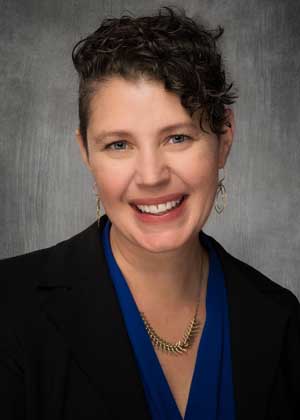As we look forward to the WineVit 2024 Convention and Trade Show, there are tremendous opportunities for continued collaboration, advocacy, education and programming, outreach and support across the wine industry.
Washington Winegrowers Association envisions a thriving industry for Washington wines and vineyards, supported by exceptional education and leading-edge research. We accomplish this vision by working together in a thoughtful, strategic approach to address the needs of our industry. From staging vineyard layouts and using clean-certified plant material, through growing, harvest and the art of winemaking, all the way to consumer delight, we remain mindful of the industry’s legacy in shaping its future.
As the Washington wine industry navigates this dynamic landscape, the issues at hand continue to provoke innovation and collaboration, not only within the wine industry but also reaching across to other agricultural partners, state and federal policymakers and regulatory agencies, research and educational supporters, industry coalitions and allied business groups.
In connection with the Washington wine industry roundtable hosted by the Washington Winegrowers Association in December, the leading issues facing us also present opportunities for the future of the wine industry:
—Environmental (smoke exposure, clean plants, water management).
—Business operations (ag labor, mechanization, regulatory impacts).
—Sales and marketing, consumer experience (product supply and demand, interstate and global export barriers, neo-prohibitionism, combating inaccurate messaging, product pricing).
—Sustainability.
While these issues adapt to our constantly fluctuating climate and circumstances, the wine industry has faced many of these concerns since the first wine grape was planted centuries ago. With each of these challenges before us, the industry makes decisions on what the outcome will be. The industry can choose to be proactive and be a part of the resolution, focusing efforts on engagement, planning and action, or the outcome and impact on the industry will be determined for us when we fail to participate.

While environmental disasters are difficult to proactively address, we can support research to understand the impacts, seek information about future trends and preemptively seek options for how to respond to projected outcomes. The West Coast Smoke Exposure Task Force is an example of a cooperative group involving Washington, California and Oregon wine industry trade associations, state educational institutions and governmental agencies, along with U.S. Department of Agriculture coordination, with the focus of smoke-impact research and problem-solving techniques for the wine industry. Similarly, the collaborative Northwest Foundation Block Advisory Group serves as a resource for research, development and access to tested, virus-free, clean-certified plant materials.
Alongside engagement with industry partners, Washington Winegrowers Association continues to advocate with state and federal policymakers and regulatory agencies to address and promote key industry issues. As we advance industry issues, we champion the interests and needs of our membership. Indeed, we are joining the industry at the WineVit 2024 Convention and Trade Show directly after our legislative efforts in Olympia in this short 2024 legislative session. Our advocacy and promotion of the Washington wine industry is ever present.
Washington agriculture provides exceptional quality of products, establishes food security, sustains and enriches our environment, employs our communities and attracts tourists to rural regions. The Washington wine industry’s focus on sustainability not only reinforces the incredible benefits of this agricultural product, but it also demonstrates the commitment to enhancing and protecting our landscape.
Here in Washington, we have the pinnacle of sustainable and renewable resources: amazing soil profiles and growing areas to create 20 unique American Viticultural Areas; beneficial irrigation water management systems; opportunities for strategic planning and management of vineyards and wine grape varietals; employee and community stewardship; wineries and tasting rooms in locations that showcase the splendor of Washington state; and premier winemakers creating beautiful wines.
The Sustainable WA winegrape standard is the first statewide sustainability certification program, built on a rigorous, science-based program with continuous improvement in mind. To be certified as Sustainable WA and use the trademarked brand is to proudly demonstrate an operation that is environmentally sound, socially equitable and economically viable.
These focus areas for the Washington wine industry also touch upon related themes for tree fruit and other Washington agriculture. Working together, we serve as a unifying voice to promote Washington agriculture and facilitate deliberate resolution of our shared challenges and issues. We can engage in the research needed to understand the issues and inform future possibilities, provide education and awareness on the issues and act in support of the issues within our sphere of impact and control. Ultimately, we can shape the future of our own design.
Cheers to a thriving 2024 season for Washington agriculture and the Washington wine industry!
—by Colleen Frei
Colleen Frei became the executive director of the Washington Winegrowers Association in January. She can be reached at: colleen@wawinegrowers.org.






Leave A Comment